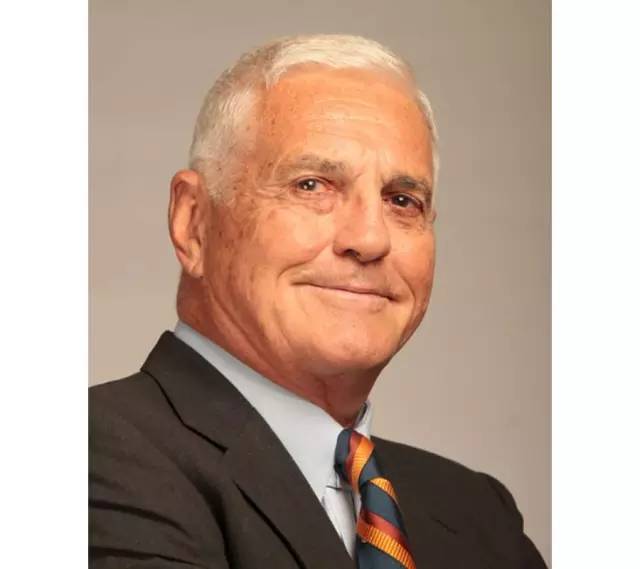 Lutz:“训练自己,你应该意识到自己不可能天生什么都比别人强。”
Lutz:“训练自己,你应该意识到自己不可能天生什么都比别人强。”
2016年最新纪录片《再活一天》(LiveAnother Day)展示了底特律汽车三巨头的起起伏伏,其中通用汽车前任副主席Bob Lutz展示了非凡的洞察力与热情,这也使他成为40多年来整个汽车行业中最有效率的“汽车人”之一。现年84岁的Lutz最初的专业是市场营销MBA,但实际上他对飞机设计、系统和空气动力方面的实用知识,才真正使他成为自己口中“工程师和设计师的亲密朋友”,而这均来源于他在美国海军陆战队驾驶战斗机的经历,以及对汽车、摩托车和飞机的终生热爱。最近,Lutz先生接受了《汽车工程》主编Lindsay Brooke的采访。
Lindsay:在我超过30年的汽车报道经历中,我见过很多优秀的工程师,但什么才能成就一个真正伟大的工程师呢?
Bob:很显然,真正伟大的工程师必须拥有处理复杂数学问题的智力,还要对产品有绝对的热情,他们的左右脑通常都非常发达。一所著名工程大学的校长曾经告诉我,通用汽车(General Motors)只要我们年级里成绩最高的学生。但这位校长认为,仅凭高绩点无法决定最优秀的工程师,他就会雇佣真正对任何项目都抱以绝对热情的学生,哪怕他们的绩点可能只有2.7。这些学生会真正上手验证自己的理论,有时还会因为太热衷于自己的项目而缩短学习的时间。
我同意这位校长的看法,一些我认识的最优秀的工程师都是真正干实事的人,他们非常注重产出的结果,一点也不官僚。
Lindsay:您怎么看领导力?
Bob:一名充满激情的工程师必须能够为其所领导的团队加油鼓劲,用热情感染其他同事。我脑海里现在就有两个在这方面非常优秀的人选:第一个是Francois Castaing(上世纪90年代克莱斯勒顶峰时期的工程执行副总裁,最早在雷诺和美国汽车工作)。Castaing棒极了,他一直在负责雷诺的F1方程式车队的工作。如果你周日没能赢得比赛,那你就周一重新进行设计、周二周三重新搞零件、周四开始制造,然后周五再去测试。整个过程的时间都很紧,需要直接卷起袖子开始干活。
Francois就好像是总能够完成大家都认为不可能的事,他热爱挑战。
另一个伟大的工程师是Jim Queen(通用汽车全球工程副总裁),他是一个出色的领袖,也曾在美军驾驶F4鬼怪战斗机。我觉得Jim凭借自己的领导力完成了很多人绝对无法完成的事。Jim并不像Francois过去那样热衷于驾驶,在试车场上,只要Francois在场,我就绝对抢不过他。
Lindsay:为什么一些非常高效的工程师转入管理层后效率就变低了呢?
Bob:的确是这样,即使Francois也认为这很难,他很难理解一些违反直觉的高级管理决策。但你就是要训练自己,你应该意识到自己不可能天生就什么都比别人强。
Lindsay:成就伟大的关键是什么?
Bob:你应该愿意接受挑战,在产品上赌上自己的声誉。如果你不愿意拿自己的声誉冒险,那我认为你可能会一事无成,总是“顺其自然”不是一个优秀工程师该做的事。
Lindsay:BMW的伟大工程师怎么样?
Bob:我在BMW(1971到1974年间,担任BMW全球销售与营销执行副总裁)工作时,几乎没有任何工程师身居高位,而官僚主义却相当盛行。当我刚从通用汽车欧洲公司转到BMW时,这让我非常吃惊。我以为每个人都像我一样这么关注产品,而且为汽车而狂热。
当时,我想在BMW慕尼黑总部的顶层大厅中放置一些可以展示BMW竞赛历史的艺术品,这也是公司主席和董事办公的地方,但他们告诉我,“Lutz先生,高管的楼层是一个庄严的地方,这里没有汽车这玩意儿的位置。”我简直吃惊地合不拢嘴,BMW到底是怎么创造了这么伟大的汽车。后来,我意识到这些高管根本不了解产品的事。
在BMW公司,真正伟大的工程都发生在远离高管层的地方。我们有Alexander von Falkenhausen,一位非常出色的发动机工程师。他曾在2款2.5L内联6缸发动机的基础上设计了我们的第一款12缸V12发动机,而且只用了几周时间。
像Castaing、Queen和von Falkenhausen这样真正伟大的工程师往往都更注重产出,而非流程。这点我非常认同,因为那些“只要流程没问题,产品一定没问题”的老一套往往根本行不通。如果你的目标有问题,即使流程再完美也不会有什么好结果。
Throughout the 2016 documentary film Live Another Day about the fall and rise of the Detroit-3 automakers, former GM Vice Chairman Bob Lutz shows the insight and enthusiasm that made him one of the industry’s most effective “product guys” for four decades. While Lutz, now 84, actually holds a marketing MBA, his practical knowledge of aircraft design, systems and aerodynamics learned as a U.S. Marine Corps fighter pilot combined with a life-long love of cars, motorcycles and aircraft made him, as he says, “a close friend of engineers and designers.” He spoke recently with editor-in-chief Lindsay Brooke.
I’ve met many good engineers in my +30 years covering the industry. But what makes a great one?
Truly great engineers obviously have the intellect for handling the complexities of the math, combined with a thorough passion for the product. They tend to be left- and right-brained thinkers. The president of a major engineering university once told me that General Motors would only recruit his students who had the top grade-point averages. He argued that GPA alone does not make the best engineers. He said the kids he’d hire himself are the ones who might have a 2.7 [GPA] but who are absolute fanatics about whatever project they’re working on. They’ve got dirty fingernails from testing their theories and some even cut short their study time because they’re so passionate about their projects.
I agree. Some of the best engineers I’ve worked with are hands-on, very outcome-focused. And non-political.
What about leadership?
The passionate engineer then must trigger that same or greater enthusiasm in the people he or she is leading. Two people come to mind whom I think were exceptionally good at that. First and foremost is Francois Castaing [Executive VP of Engineering at Chrysler during its 1990s heyday who achieved earlier successes at Renault and American Motors]. Castaing was fabulous—he’d been in charge of Renault’s Formula 1 racing team. In racing if you don’t win on Sunday you re-design on Monday, you finish re-engineering the new parts on Tuesday and Wednesday, you fabricate them on Thursday and you test on Friday. It’s all short lead time, roll-up-your-sleeves and get the job done.
Francois was like that—and constantly doing things that were accepted by the system as being impossible. He loved challenges.
The other great engineer is Jim Queen [GM Group VP Global Engineering], a superb leader and former Marine pilot who flew F4 Phantoms. I felt that Jim got a lot of things done by the power of his leadership that lesser people couldn’t have accomplished. Jim wasn’t as enthusiastic about driving as Francois was—at the proving ground I never got to drive first if Francois was there.
How is it that engineers who are highly effective simply being engineers often turn out to be much less so when they move into management?
Even Francois found that to be tough, because he couldn’t understand senior management decisions that were counterintuitive. But you just train yourself to realize you can’t win every battle.
What’s the key to engineering greatness?
The willingness to take intelligent risks—both reputational and risks with the product. If you’re not willing to put your credibility on the line, I don’t think you’re going to achieve anything. To always ‘go with the flow’ is not great-engineer stuff.
How about great engineers at BMW?
When I was at BMW [1971-74, Executive VP Global Sales and Marketing] there were almost no engineers in senior positions. There were plenty of bureaucrats, however. That was my big surprise when I first went to BMW from GM Europe. I thought everybody was going to be enormously product focused, like me, and passionate about the cars.
When I wanted to put some nice artwork of BMW’s racing history in the lobby of the top floor of BMW headquarters in Munich where the chairman and members of the management board had their offices, I was told, ‘Mr. Lutz, the senior executive floor is a dignified place. Automotive subjects have no place here.’ That surprised the hell out of me and it made me wonder how we made such great cars. Then I found out senior management was blissfully unaware of what was going on in the product area.
At BMW the great engineering took place at a level well below senior management. We had Alexander von Falkenhausen, the brilliant engine guy. He did our first V-12 based on two 2.5-L inline sixes, in a few weeks.
The truly great engineers like Castaing, Queen and von Falkenhausen tend to be outcome-oriented versus process-oriented. That counts a lot with me because that old ‘If you get the process right, the product will be right’ bullshit often doesn’t work. If you have a perfect process with the wrong goals, you won’t have anything worthwhile.
Author: Lindsay Brooke
Source: SAE Automotive Engineering Magazine
等级
打分
- 2分
- 4分
- 6分
- 8分
- 10分
平均分
- 作者:Lindsay Brooke
- 行业:汽车
- 主题:
